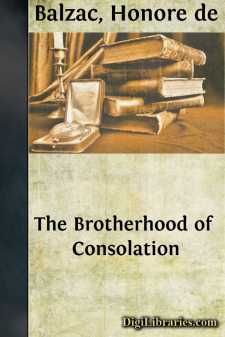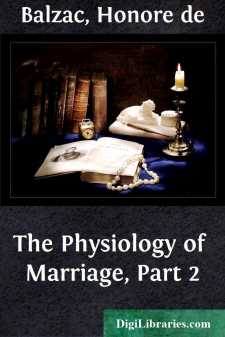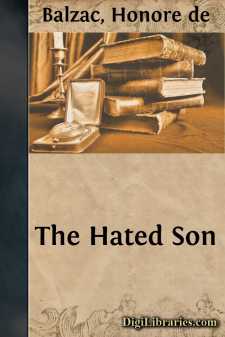Categories
- Antiques & Collectibles 13
- Architecture 36
- Art 48
- Bibles 22
- Biography & Autobiography 813
- Body, Mind & Spirit 142
- Business & Economics 28
- Children's Books 17
- Children's Fiction 14
- Computers 4
- Cooking 94
- Crafts & Hobbies 4
- Drama 346
- Education 46
- Family & Relationships 57
- Fiction 11829
- Games 19
- Gardening 17
- Health & Fitness 34
- History 1377
- House & Home 1
- Humor 147
- Juvenile Fiction 1873
- Juvenile Nonfiction 202
- Language Arts & Disciplines 88
- Law 16
- Literary Collections 686
- Literary Criticism 179
- Mathematics 13
- Medical 41
- Music 40
- Nature 179
- Non-Classifiable 1768
- Performing Arts 7
- Periodicals 1453
- Philosophy 64
- Photography 2
- Poetry 896
- Political Science 203
- Psychology 42
- Reference 154
- Religion 513
- Science 126
- Self-Help 84
- Social Science 81
- Sports & Recreation 34
- Study Aids 3
- Technology & Engineering 59
- Transportation 23
- Travel 463
- True Crime 29
The Brotherhood of Consolation
by: Honore de Balzac
Categories:
Description:
Excerpt
I. THE MALADY OF THE AGE
On a fine evening in the month of September, 1836, a man about thirty years of age was leaning on the parapet of that quay from which a spectator can look up the Seine from the Jardin des Plantes to Notre-Dame, and down, along the vast perspective of the river, to the Louvre. There is not another point of view to compare with it in the capital of ideas. We feel ourselves on the quarter-deck, as it were, of a gigantic vessel. We dream of Paris from the days of the Romans to those of the Franks, from the Normans to the Burgundians, the Middle-Ages, the Valois, Henri IV., Louis XIV., Napoleon, and Louis-Philippe. Vestiges are before us of all those sovereignties, in monuments that recall their memory. The cupola of Sainte-Genevieve towers above the Latin quarter. Behind us rises the noble apsis of the cathedral. The Hotel de Ville tells of revolutions; the Hotel-Dieu, of the miseries of Paris. After gazing at the splendors of the Louvre we can, by taking two steps, look down upon the rags and tatters of that ignoble nest of houses huddling between the quai de la Tournelle and the Hotel-Dieu,—a foul spot, which a modern municipality is endeavoring at the present moment to remove.
In 1836 this marvellous scene presented still another lesson to the eye: between the Parisian leaning on the parapet and the cathedral lay the "Terrain" (such was the ancient name of this barren spot), still strewn with the ruins of the Archiepiscopal Palace. When we contemplate from that quay so many commemorating scenes, when the soul has grasped the past as it does the present of this city of Paris, then indeed Religion seems to have alighted there as if to spread her hands above the sorrows of both banks and extend her arms from the faubourg Saint-Antoine to the faubourg Saint-Marceau. Let us hope that this sublime unity may be completed by the erection of an episcopal palace of the Gothic order; which shall replace the formless buildings now standing between the "Terrain," the rue d'Arcole, the cathedral, and the quai de la Cite.
This spot, the heart of ancient Paris, is the loneliest and most melancholy of regions. The waters of the Seine break there noisily, the cathedral casts its shadows at the setting of the sun. We can easily believe that serious thoughts must have filled the mind of a man afflicted with a moral malady as he leaned upon that parapet. Attracted perhaps by the harmony between his thoughts and those to which these diverse scenes gave birth, he rested his hands upon the coping and gave way to a double contemplation,—of Paris, and of himself! The shadows deepened, the lights shone out afar, but still he did not move, carried along as he was on the current of a meditation, such as comes to many of us, big with the future and rendered solemn by the past.
After a while he heard two persons coming towards him, whose voices had caught his attention on the bridge which joins the Ile de la Cite with the quai de la Tournelle. These persons no doubt thought themselves alone, and therefore spoke louder than they would have done in more frequented places....












